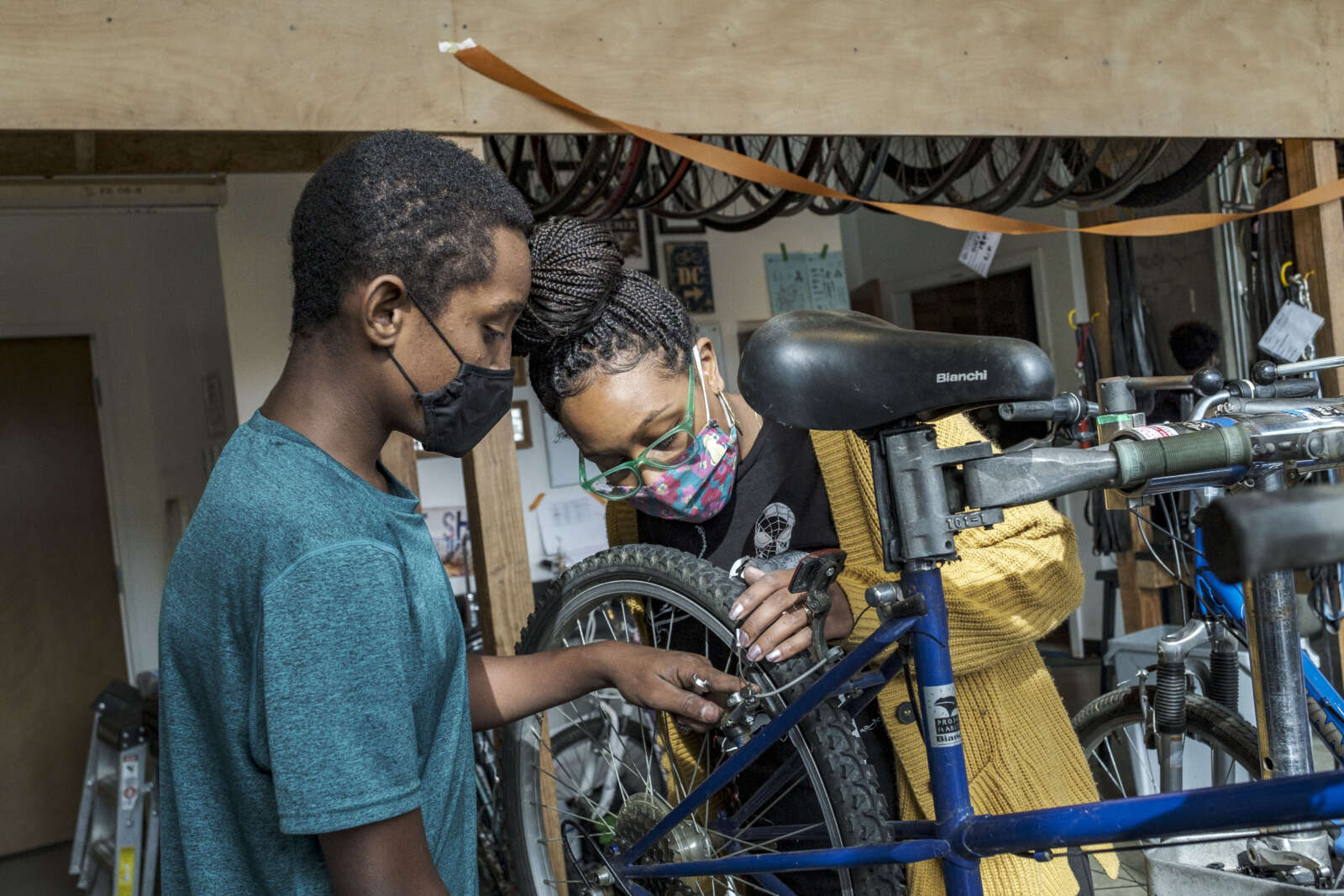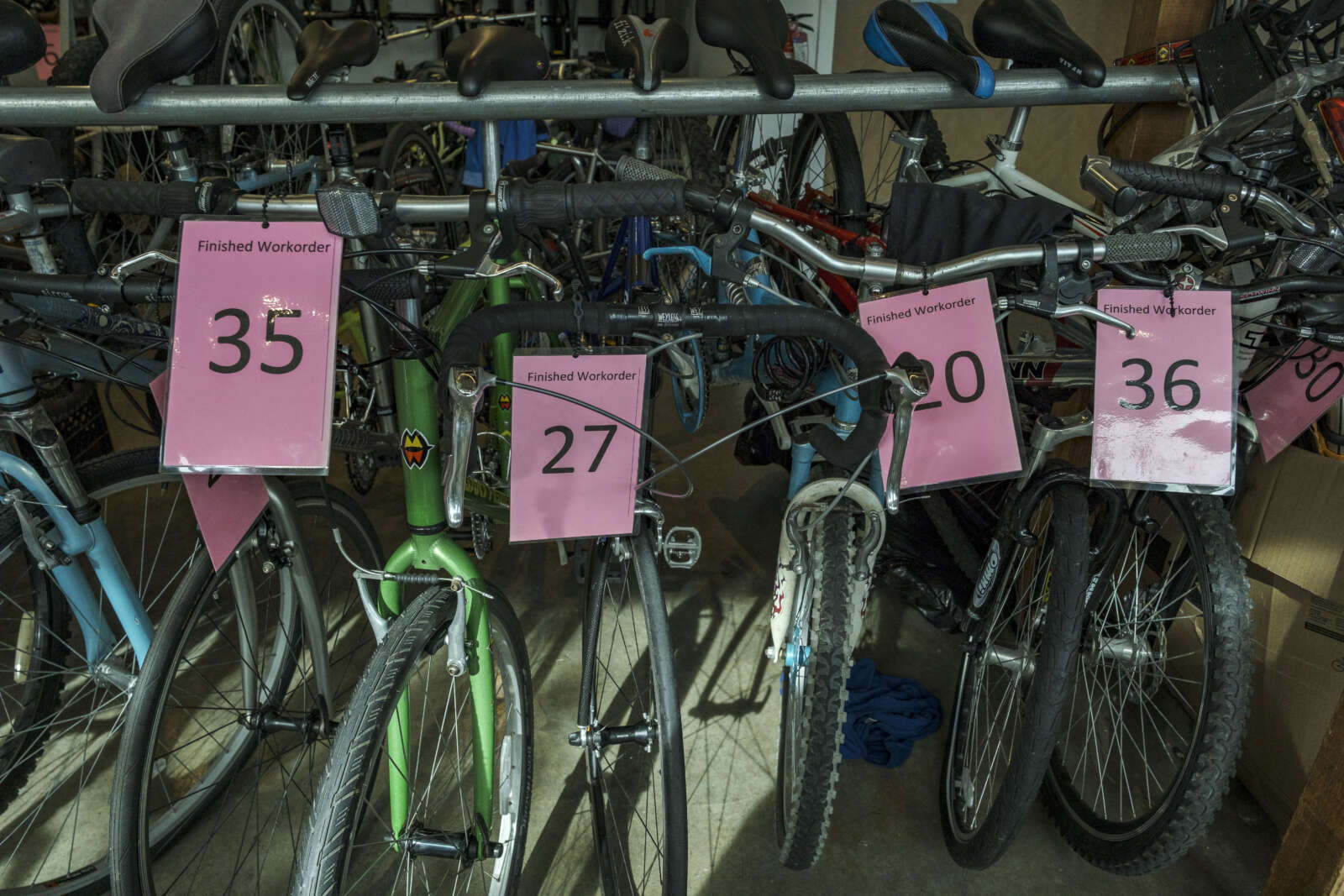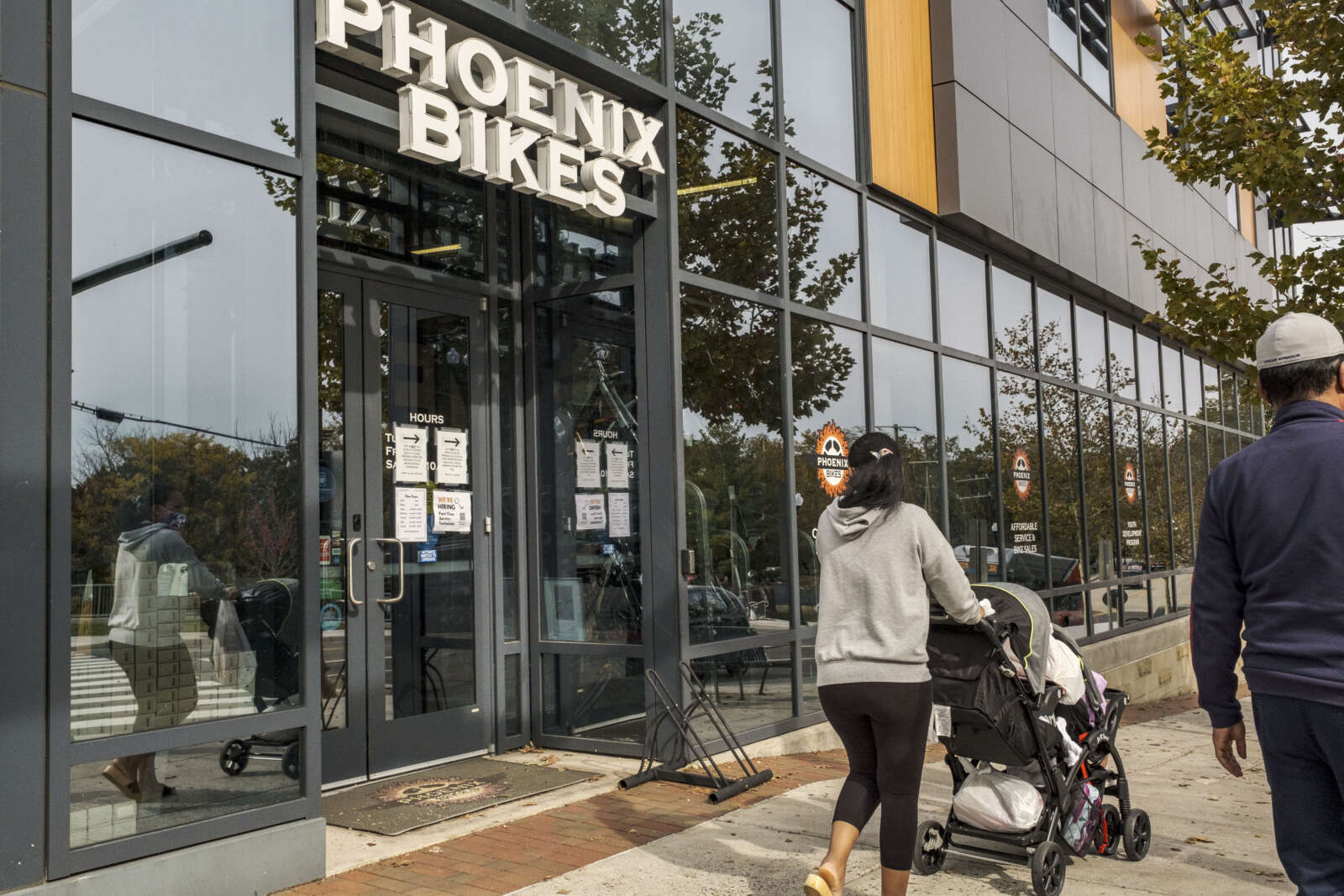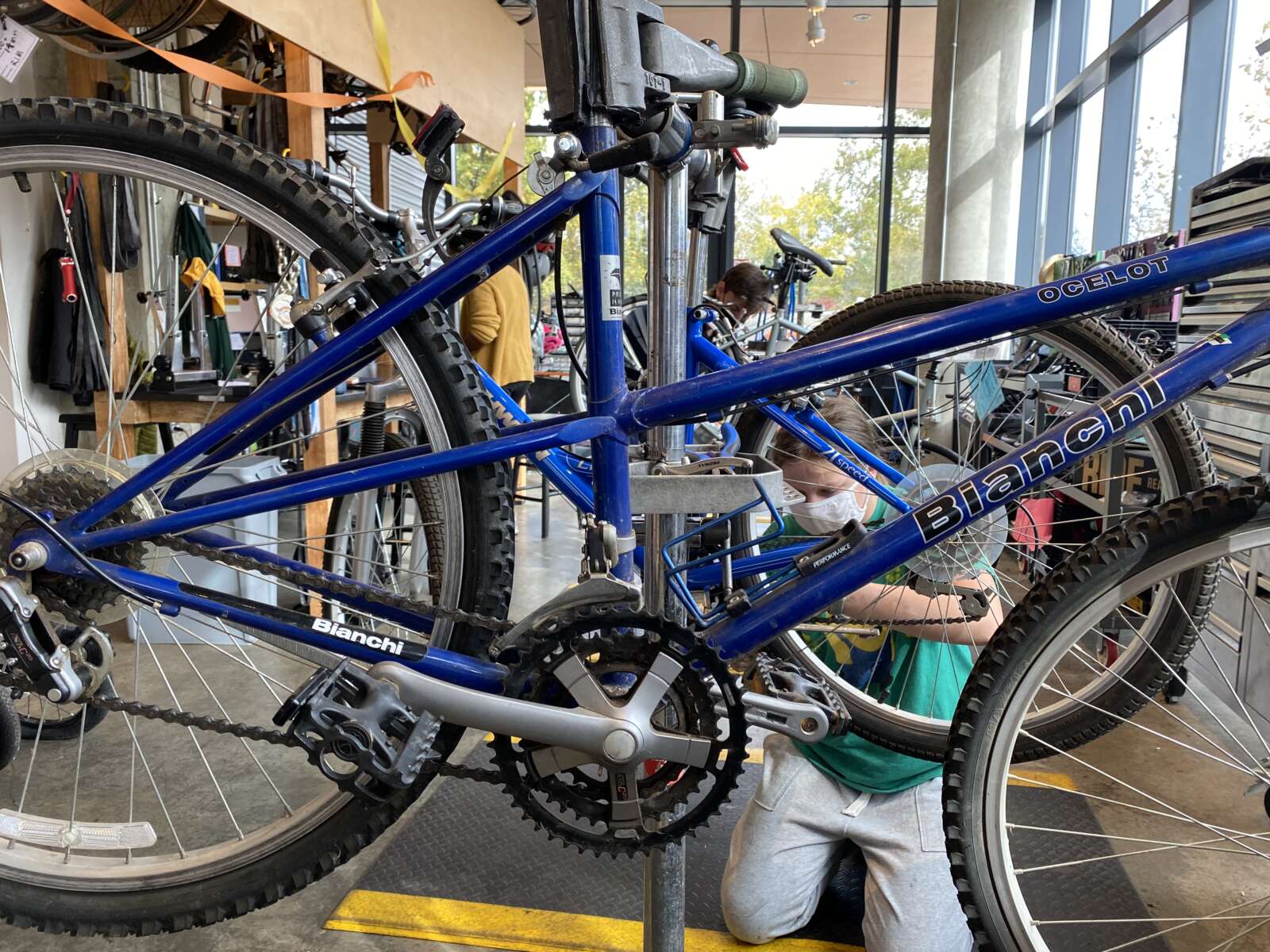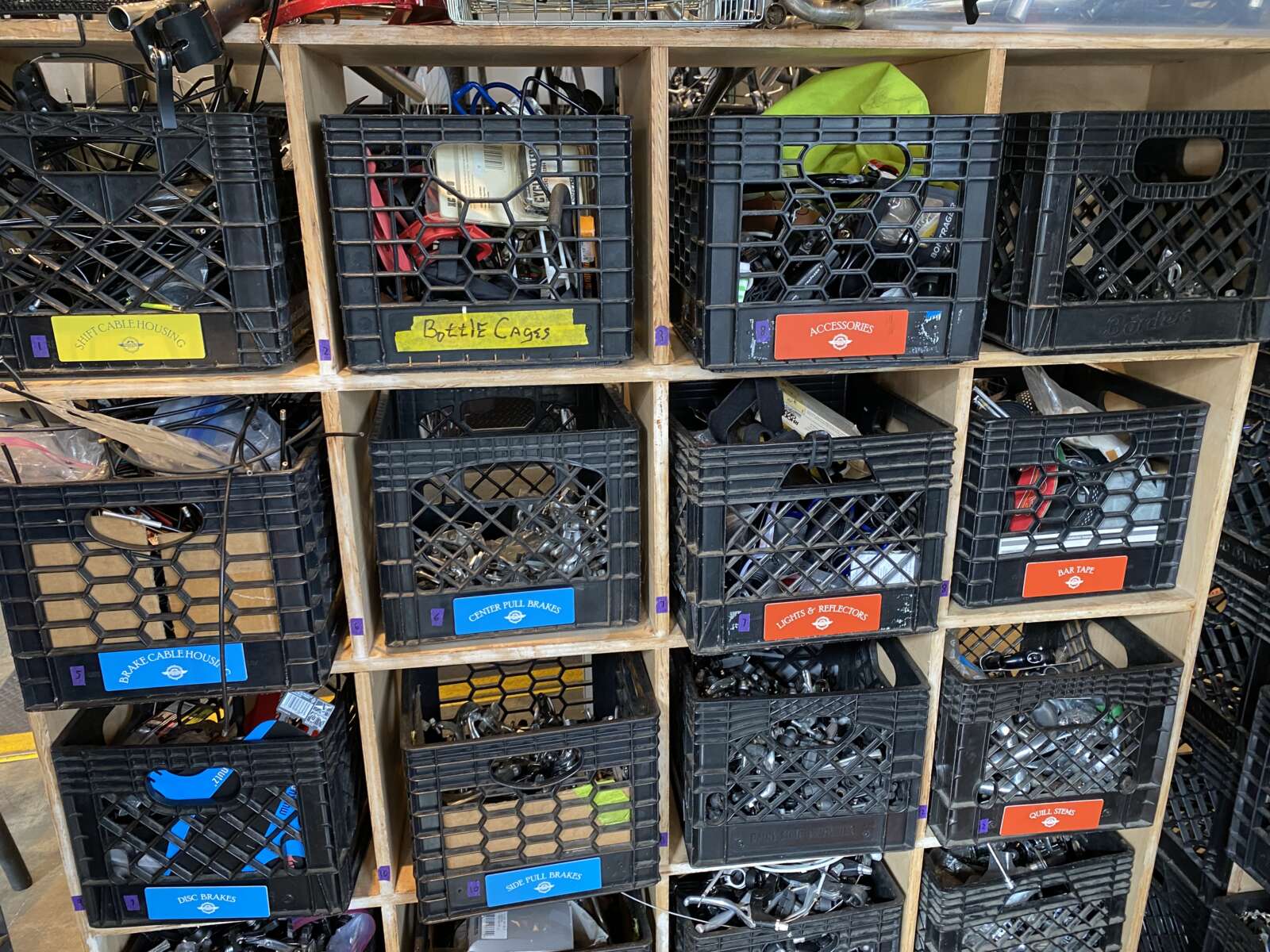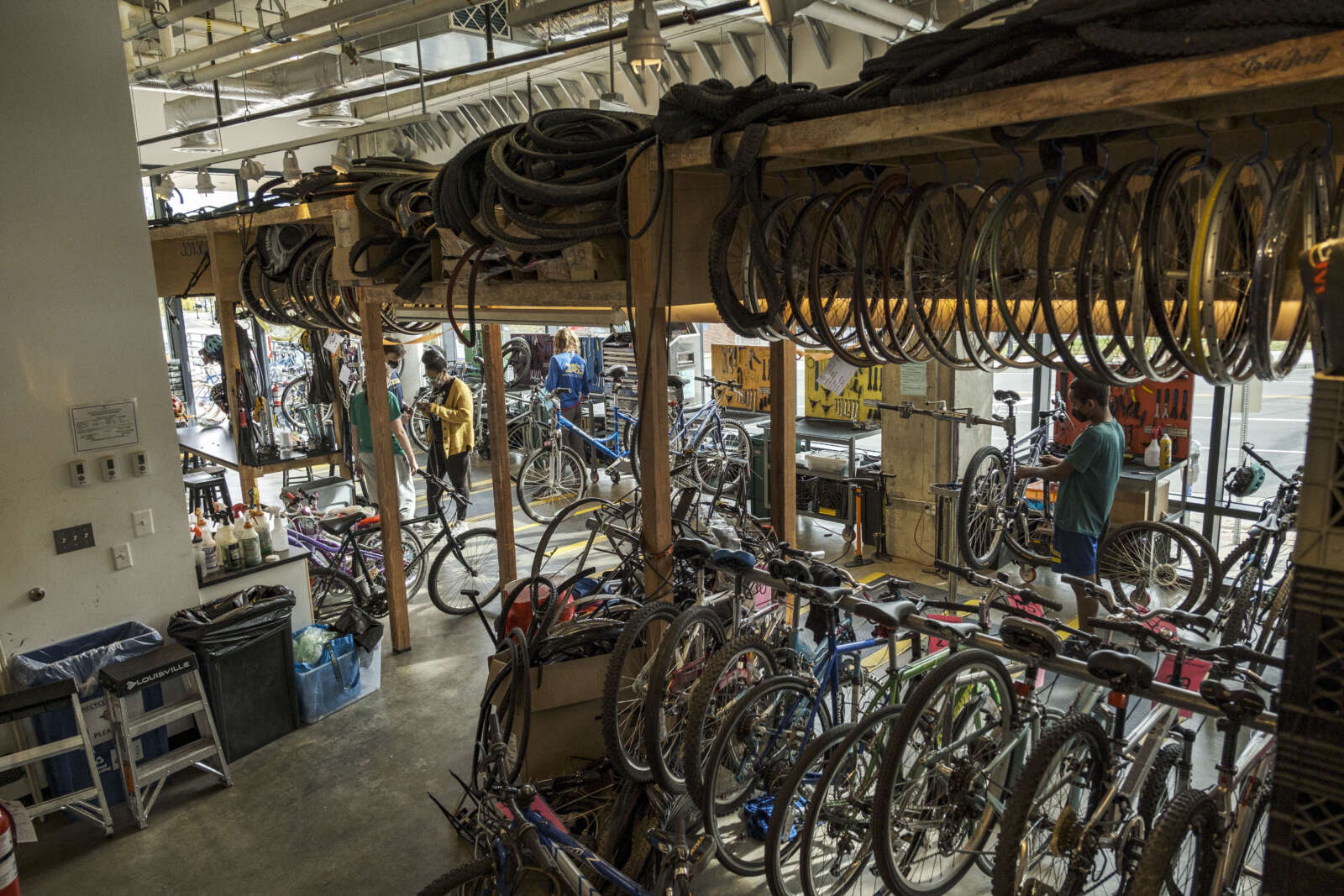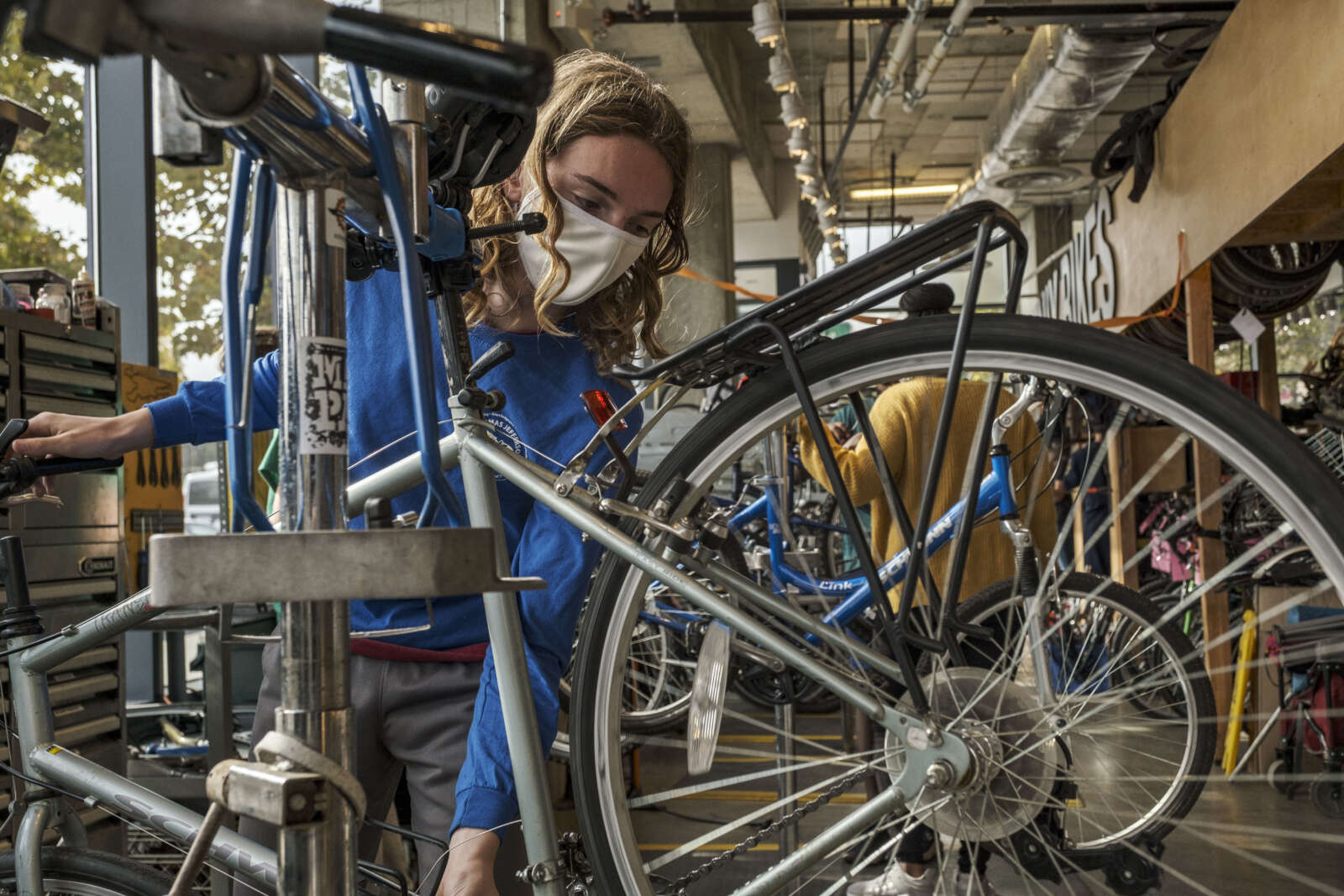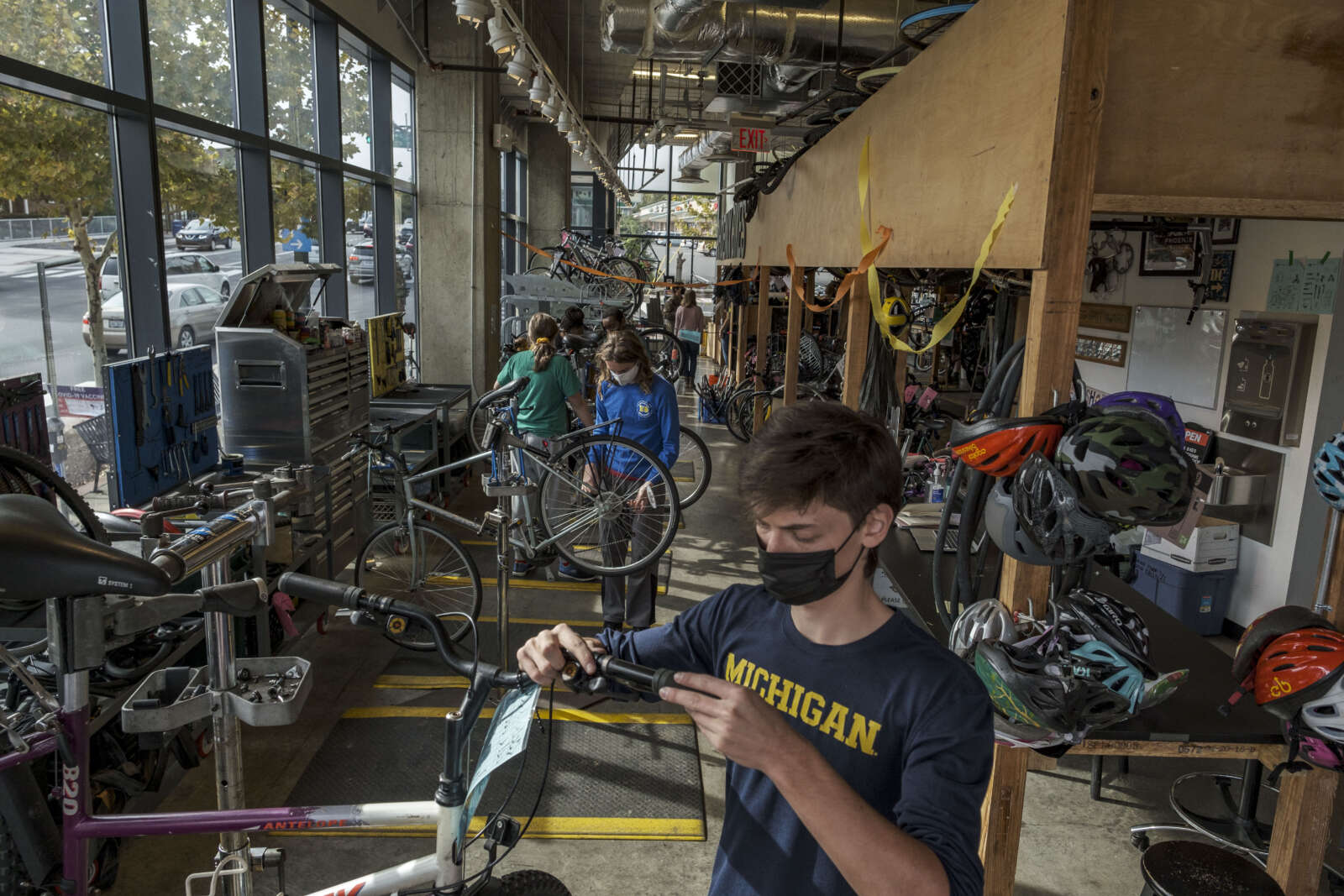(Updated, 11/16) For a Thursday afternoon, Phoenix Bikes just off of Columbia Pike is busy.
School’s out due to the holiday of Diwali, so there are a number of teenagers here at the shop on S. Dinwiddie Street spending their time learning how to build and fix bikes.
“I’ve learned how to fix a flat tire,” says 12-year-old Evelyn McCabe, holding a wrench in one hand, noting that she’s going to be an engineer one day. “I was actually on a bike ride and got a flat tire, but I knew how to fix it… it makes me feel good because I’m able to do that stuff.”
Phoenix Bikes is an Arlington non-profit, founded in 2007, that teaches kids how to fix bikes. Of course, their mission goes way beyond that. As their website explains, “Phoenix Bikes harnesses the power of bikes to help youth build passion, purpose, and a place in the community.”
“They’re learning social skills, they’re building confidence, they’re learning how to problem solve, persevere through frustration,” Phoenix Bikes executive director Emily Gage tells ARLnow, as cranking and clanging echoes in the background. “It’s so much more than bike mechanics.”
All students in sixth through 12th grades are eligible to go through the programs at Phoenix Bikes.
There’s no application or filtering process, only registration, says Gage. While the vast majority are from either Arlington or Alexandria, students come from across the region to work at the shop.
The main program is “earn-a-bike” where students fix up a bike, then donate it to a community member in need. Phoenix Bikes works with a number of other local nonprofits to provide these bikes to those who are experiencing homelessness, coming out of incarceration, or just in need of reliable transportation. After building a bike for a community member, students get a bike of their very own.
“All the skills they’ve learned, they can put to use on their own bikes,” notes Gage.
Overall, it usually takes the students 12 weeks and about 20 to 25 hours to complete the program, Gage says, though they’re able to do it at their own pace.
Phoenix Bikes relies on donations, both financial and bikes. The shop gets about 1,000 bikes donated a year, says Gage, all going towards helping students learn to fix, build, and maintain a bike.
It’s also a full service bike shop for the community, where everything from tune-ups to repairs to custom build outs-are done, with the profits also going back to programs. Older students are store managers and sales reps, helping customers work through their issues and find the right bike for them.
Phoenix Bikes also brings its unique method of teaching life skills to several Arlington County and Alexandria schools every semester, by taking the earn-a-bike program to meet students where they are.
Additionally, it has a racing team and more advanced mechanical classes.
In a typical year, Gage says Phoenix works with about 400 students in total. The past year, however, that number has been cut intentionally by half, to only about 200 students, to keep groups smaller due to Covid protocols. The hope is next year the program will get back to its previous capacity.
Tofik Beshir, 14, is walking out the door with his bike that he just repaired. He’s a star pupil and a recent winner of the GRIT award, given to students who show perseverance, discipline, and enthusiasm. He’s been working at Phoenix Bikes for about two years. When he started there, he saw a bike as just a mode of transportation. Now, he sees it as so much more.
“It’s completely changed my world,” he says. “It lets me be myself.”
Beshir has gotten really into mountain biking — something that can be a challenge in Arlington — and racing. Despite his age, he says he’s got his life all “mapped out.” He envisions himself becoming a professional racer, opening his own bike shop, and traveling the world with his bike.
Right now, though, he goes to school, bikes a lot, and spends the rest of the time at Phoenix Bikes tinkering. He also says, laughing, that his friends are asking him to fix their bikes all the time.
With the skills he’s learned, Beshir feels free. He can go anywhere and, if his bike does get a flat or a chain breaks, he can usually fix it.
“Sometimes, I just ride and ride,” he says.


